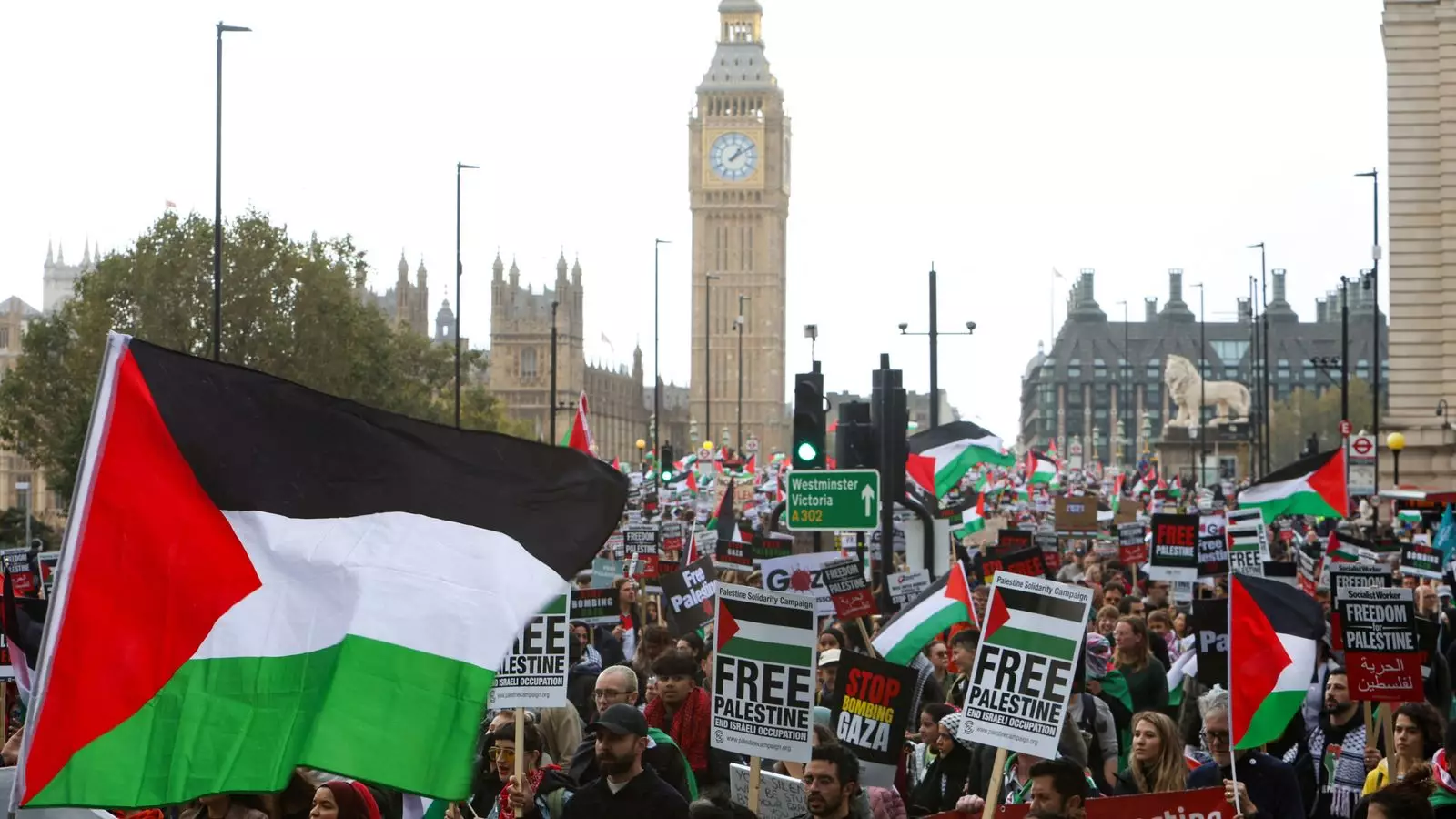As Remembrance Day approaches, the Metropolitan Police in London faces mounting pressure to ensure that remembrance events are not disrupted by ongoing protests. With hundreds of thousands of people taking to the streets across the country in response to the Israel-Hamas war, the police have been criticized for allowing a pro-Palestinian march to proceed on Armistice Day. Despite comments from political figures, including the prime minister and the home secretary, the decision to resist a ban on the march has been supported by police chiefs. However, concerns over potential violence and disorder persist, leading to the deployment of over 1,000 officers from forces around the country. This article delves into the controversy surrounding the events and examines the challenges faced by the police in maintaining public order.
The pro-Palestinian demonstrations taking place over the past five weeks have been largely peaceful according to Gavin Stephens, chairman of the National Police Chiefs’ Council (NPCC). He emphasized that there had not been any significant violence or disorder, except for a few isolated incidents. However, there is a concern about a minority group intent on disrupting the law-abiding masses. With protesters and counter-demonstrators expected to converge in London from all over England and Wales, the Metropolitan Police has mobilized additional forces from different regions. This measure aims to ensure that law and order are maintained during this tense period.
The decision of the Metropolitan Police to allow the pro-Palestine march to proceed has drawn criticism from various quarters. Rishi Sunak, a political figure, has expressed his intent to hold Met commissioner, Sir Mark Rowley, accountable for this decision. Meanwhile, Suella Braverman faced widespread condemnation for her article in The Times, wherein she referred to the participants of the march as “hate marchers” and accused the police of favoritism towards left-wing groups over right-wing and nationalist activists. Gavin Stephens, however, made it clear that the job of the police is not to hold politicians accountable. He stressed the importance of maintaining independence in operational decision-making, free from the influence of public debate.
In the pursuit of impartiality, police decisions should not be influenced by personal views or external pressures. Gavin Stephens asserted that the police neither favor nor discriminate against any group based on personal opinions. He recognized the need for careful language and actions to prevent the escalation of tensions within communities. As the world grapples with tragic international conflicts affecting numerous families, the police play a crucial role in diffusing tensions and maintaining a sense of peace and order.
The ongoing protests have not been without issues. Previous weeks witnessed troubling incidents of antisemitism, support for banned terrorist groups, and even instances of individuals chanting “jihad” during fringe protests. Despite that, the organizers of the pro-Palestinian march have assured that it will be held away from the Cenotaph, starting from Hyde Park and ending at the US embassy. Furthermore, the march will not commence until after the 11 am silence, respecting the importance of remembrance. Chief Constable Chris Haward, leading the national police response to the Israel-Hamas conflict, acknowledges that even if the march were to be banned, protesters would still have the right to gather in a static position. This highlights the challenges faced by the police, as banning the march does not guarantee the absence of protesters.
Chief Constable Chris Haward reiterated the commitment to facilitate counter-protests without bias. However, he also made it clear that hate crimes and law-breaking would not be tolerated. The surge in hate crimes following the Hamas attack on Israel has been particularly significant in London, with the Metropolitan Police accounting for over 70% of such offenses nationwide. This emphasizes the importance of maintaining the delicate balance between enabling peaceful expression of voices and ensuring the safety and security of all individuals during these events.
As Remembrance Day approaches, the Metropolitan Police faces immense pressure to preserve the solemnity of the occasion amidst ongoing protests. The decision to allow a pro-Palestinian march has sparked controversy and political criticism. However, the police chiefs have stood by their choice, emphasizing the need for independence in operational decision-making. With the deployment of additional officers, the police aim to maintain public order and ensure the safety of all individuals involved. The challenges faced by the police highlight the delicate balance between allowing peaceful protests and preventing potential violence and disruption. As the nation reflects on the sacrifices of the past, the Metropolitan Police shoulders the responsibility of preserving the sanctity of Remembrance Day.


Leave a Reply